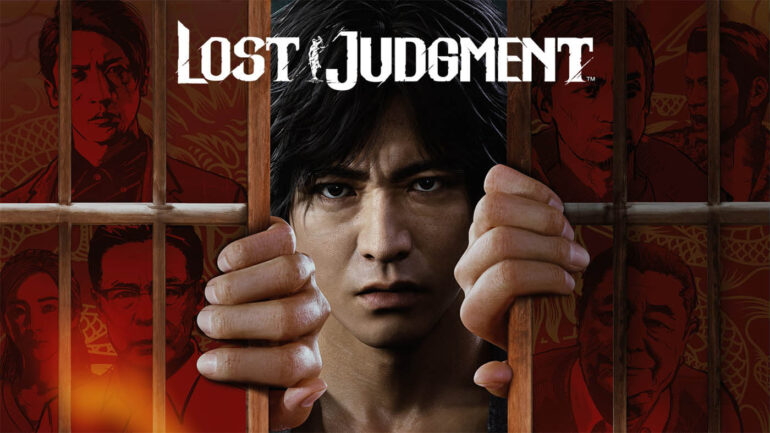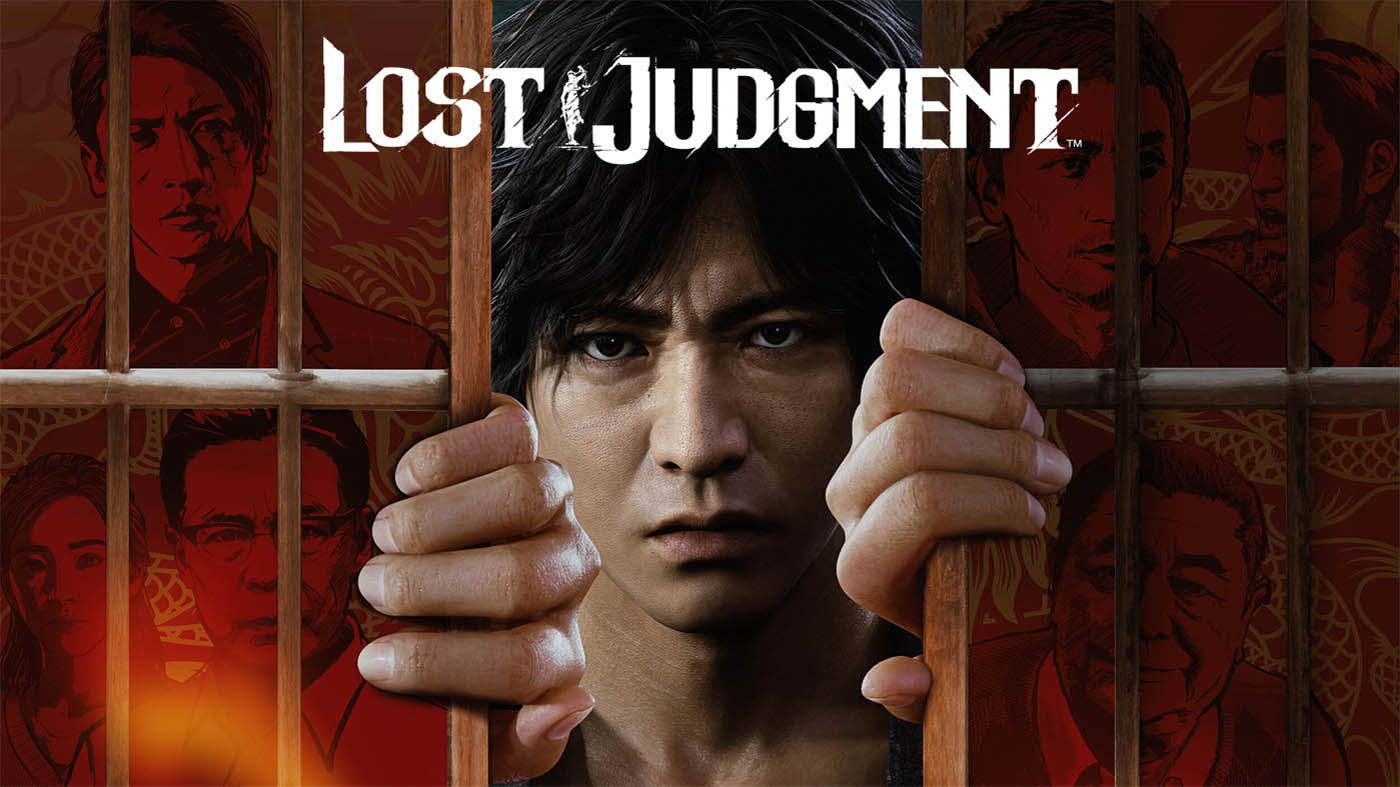CW: Lost Judgment’s story contains themes of bullying, sexual assault and suicide. The following review touches briefly on these without going into detail, but please keep this in mind if you plan on playing Lost Judgment. Be sure to take breaks where needed and reach out to a trusted person or service if you feel that you need support.
Visit here for a list of mental health support networks and contacts.
When Ryu ga Gotoku Studio released 2019’s Yakuza spin-off, Judgment, it felt like a departure mainly in tone. It swapped the larger-than-life stories of organised crime syndicates, government conspiracies and sympathetic, Robin Hood-type antiheroes for gritty noir fiction with a significantly darker feel, but otherwise built off of a similar overall game structure. Fast forward to 2020 though and the mainline Yakuza series took a massive detour with Yakuza Like a Dragon’s pivot to JRPG combat alongside a brand-new setting and protagonist, resulting in arguably the best entry yet but dividing fans of the original format.
Enter Lost Judgment, a direct sequel to Judgment and the new flag bearer for the real-time flavour of Yakuza-universe titles.
Lost Judgment finds lawyer-turned-detective Takayuki Yagami once again being called on by his old haunt, Genda Law, to assist in an assault case with a shocking twist. Apprehended for groping a woman on a crowded Tokyo train, former police chief, Akihiro Ehara, willingly admits to committing the act. While in court though, Ehara drops the bombshell that a murder has been committed and reveals the location of the body, belonging to a man who’d driven Ehara’s son to suicide years prior due to bullying. This immediately raises the question of how Ehara could possibly know about the murder before anyone else, and what his involvement might be given his clear motive but watertight alibi in the heavily-witnessed sexual assault and subsequent detainment. Along with his ex-yakuza buddy, Kaito, and a few familiar faces from the original game, this sequel takes Yagami across both Kamurocho and Yokohama to unravel the thrilling mystery.
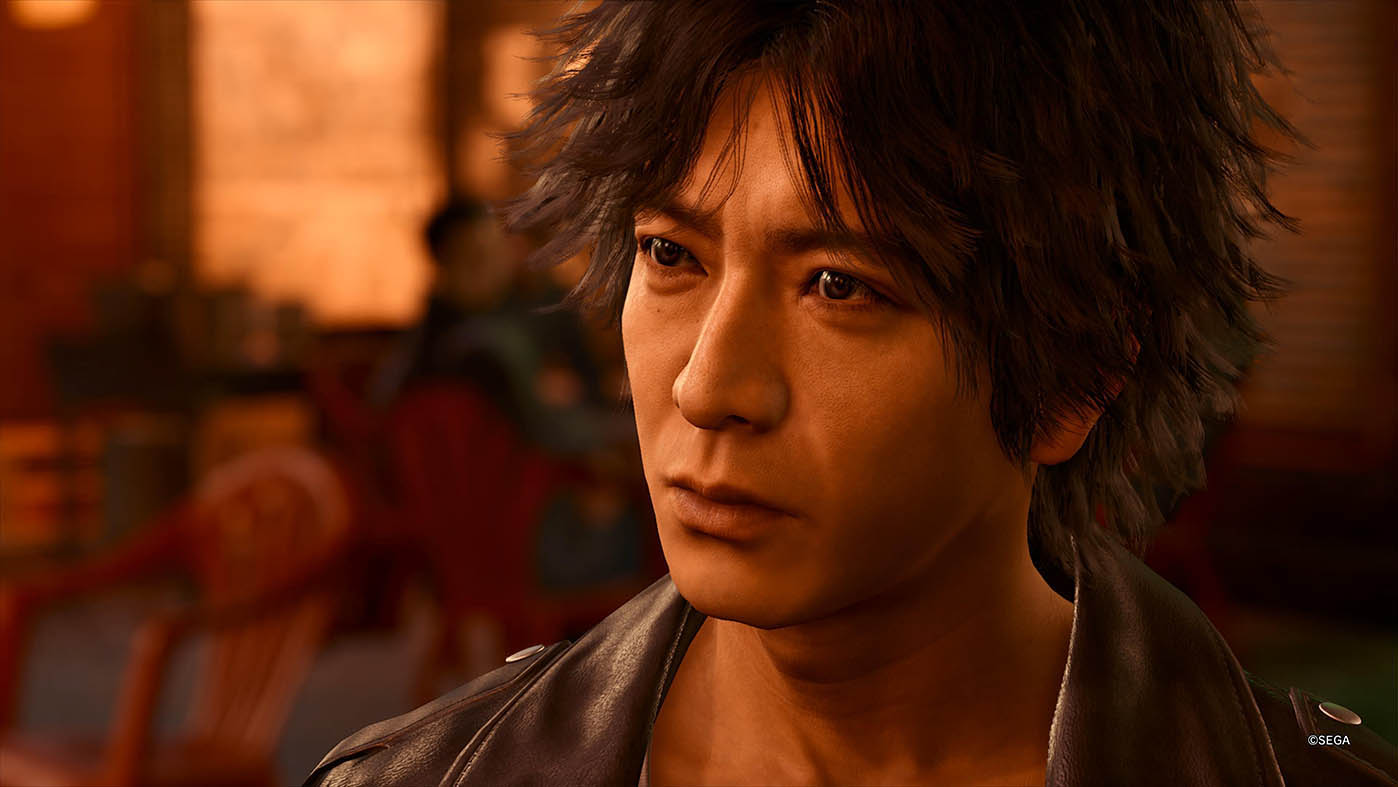
Lost Judgment’s core case has enough twists and turns to be a high-level Dragon Kart track, with Yagami’s resolve and ability to see through his emotions once again tested as human lives begin to become collateral in his relentless need to unfold a mystery that has a reach beyond what he could fathom. Admittedly, once some of the bigger revelations come to the surface leading into the final chapters it loses a little steam, but by that point the sheer conviction of Yagami and company is strong enough that you’re left rooting for them until the bittersweet end. I just wish it treated its women better, pushing Saori to the background of her own case and then doubling down on the uncomfortable dress-up segment from last time is certainly a disappointing choice.
Whether or not the game’s core narrative compels you, the subject matter of bullying, suicide and sexual assault make for quite jarring tonal whiplash against diversions like skateboarding, battling robots and beating up high schoolers. These games have always struck a balance between hard hitting storytelling and straight-up ridiculousness, but given the much darker tone of the Judgment games it feels like the needle swings more wildly than ever here. Separated by a short loading screen, transitioning from the streets of Isezaki Ijincho to Seiryo High School almost feels like watching a double feature of Takeshi Kitano’s Outrage and High School Musical. That’s either going to sound like a word of caution or a glowing endorsement depending on your tastes – I would very much attend that screening.
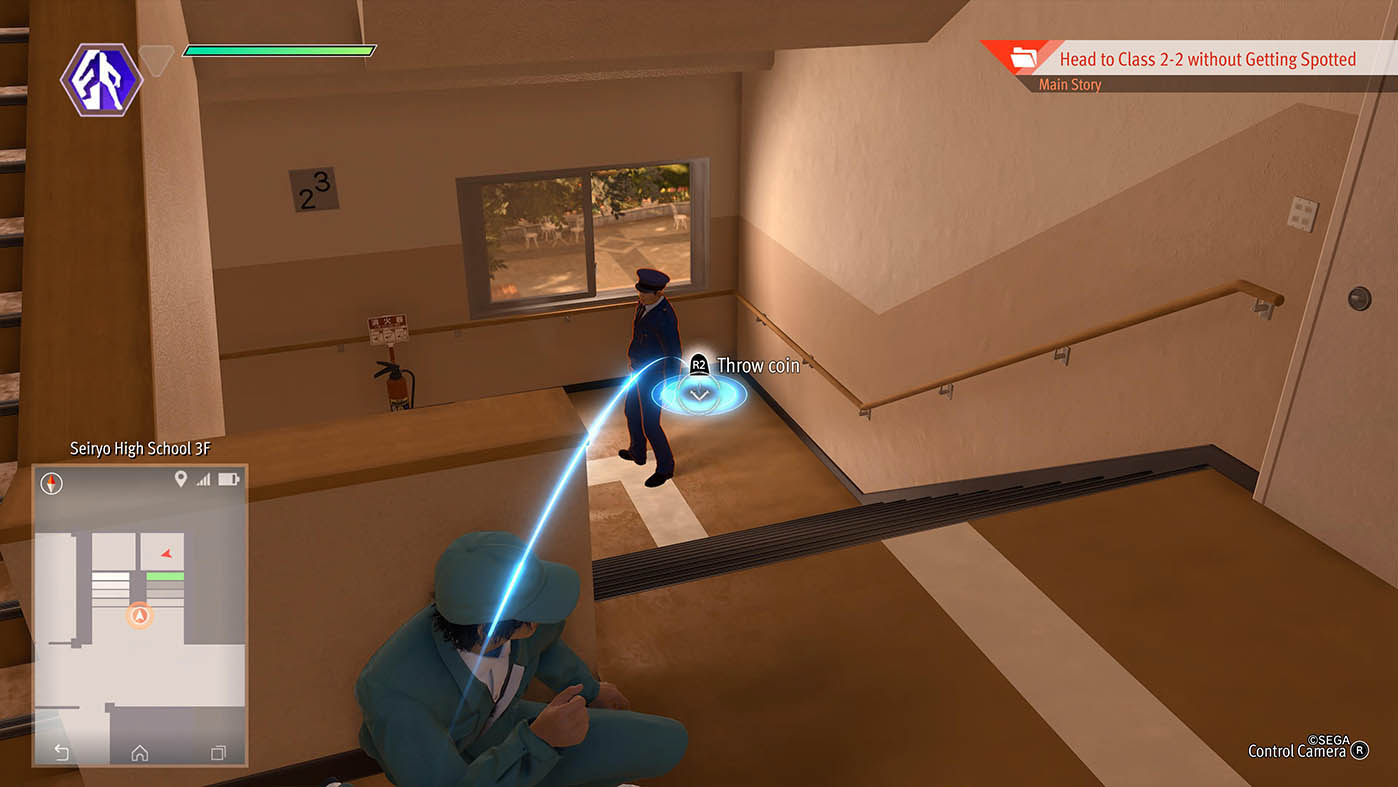
As successful as Judgment was in establishing a new identity and incorporating lite-detective gameplay into the Yakuza framework, criticism was levelled at the simplistic nature of its investigation mechanics. Every facet of these has been fleshed out in the sequel, and even more have been introduced, though the issue of a lack of player agency still persists.
Yagami’s objectives now routinely include stealth portions, parkour, brand-new gadgets and even a canine companion to sniff out trouble. These are all plenty of fun, but there’s rarely ever more than one way to tackle a problem. Stealth sections especially tend to go one of two ways – either a heavily predetermined path or a Game Over screen. There’s a silly sort of joy to be found in some of the new twists though, like pretending to look at your phone if a subject you’re tailing looks your way or being able to slow down a runaway by kicking stray objects at them with a force and accuracy that’d land Yagami a lucrative football career.
As usual, side cases are universally great and provide Yagami plenty of opportunity to flex his upgraded investigation skills. Optional side content has always been an opportunity for RGG’s writers and designers to loosen their collective collars and get a bit weird with things and that’s no different here. Ridiculous plots like thwarting an ex-editor stealing book ideas with a wiretapped cat, investigating an antique roadshow with a side of murder or tracking down a runaway video game producer are all true to the Ryu ga Gotoku DNA and continue to be a true highlight.
Though the quality of Lost Judgment’s extraneous content is as high as ever the ties holding it all together feel a little more loose than usual. Effort has been made to communicate Yagami’s detective skills through its gameplay structure – you’ve often got to put in the legwork to unearth new things to do – but navigating the possibilities can feel needlessly obfuscated. Being able to find things to do organically in the map, through side quests, by progressing school stories, by poking at random civilians with detective tools or flicking through social media makes sense but often gets in the way of actively looking for content you want to play. Despite going in excited to try various bits of content I knew were in the game, not once did I have a clear idea of what I needed to do to gain access to any of it, even after I’d finished the main objective and started playing the post-game.
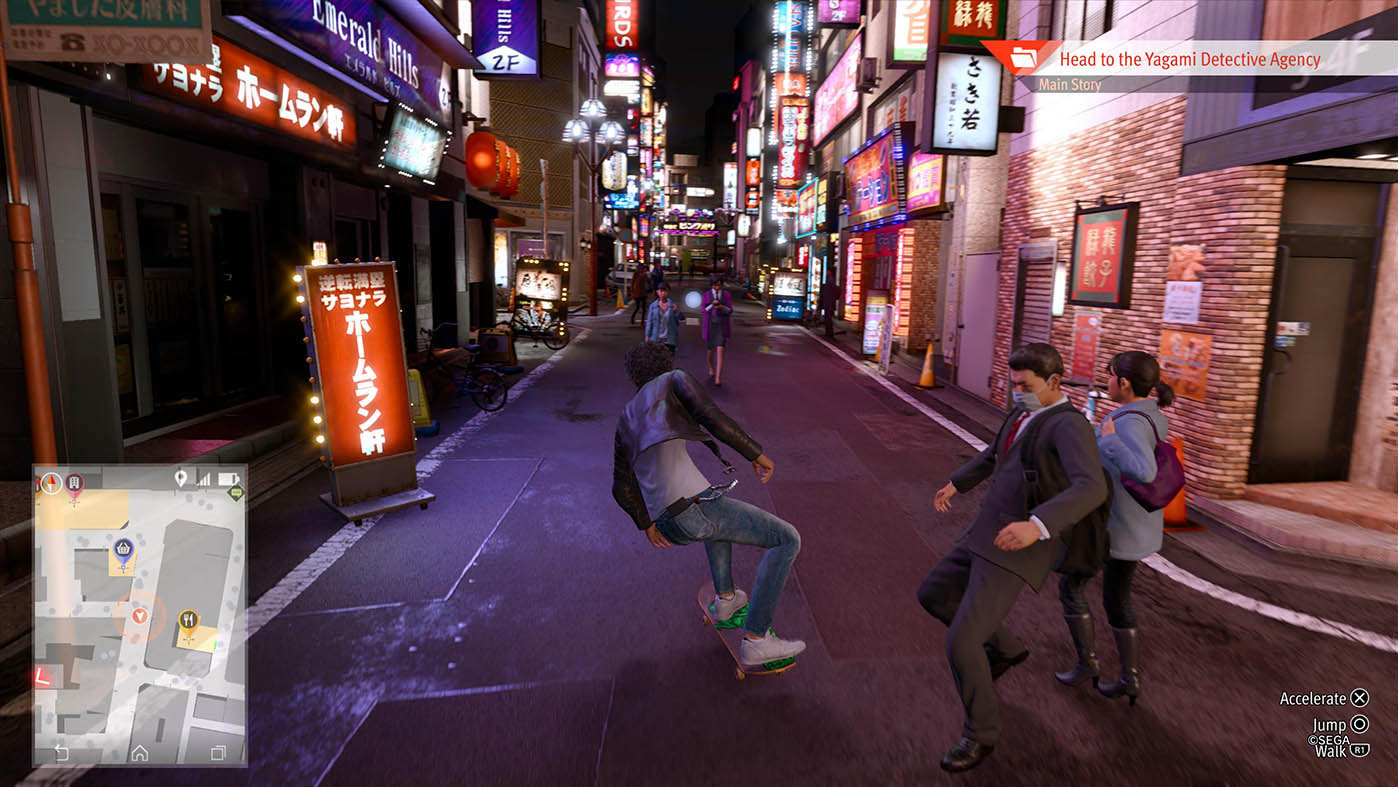
Where the districts of Kamurocho and Yokohama have previously held starring roles, they feel a little less pivotal this time around, but a large part of that comes down to the addition of Seiryo High School. There’s a strange void left where the school storyline and the main case veer off in two different directions early in the game, allowing players to decide which to tackle at any given time but portioning off most of its minigame content to Seiryo. That leaves the city streets feeling emptier than fans might be used to, at least until the later stages where side cases begin to ramp up. It’s hard to tell whether the ‘correct’ way to play is by running both storylines in concurrence or leaving the optional stuff for the endgame, but I chose the latter and found going through all the wackier stuff at the end to be a nice palette cleanser at least.
It’s almost as though Lost Judgment is suffering from an identity crisis of sorts, attempting to continue its darker brand of storytelling while also pushing the envelope when it comes to zany diversions and minigames. The problem isn’t necessarily that these activities exist – I can think of few things I want to see more than Yagami tearing up a skate park, burning rubber in biker gang death races or coaching a dance team all the way to finals – but they’d all work just as well without the added bloat of the High School Stories questline. It’s just not overly interesting, even with the promise of finding out the mysterious identity of The Professor, and the idea of a 38-year-old private investigator with ties to gang violence traipsing the halls of a high school joining various clubs is a stretch even for this series.
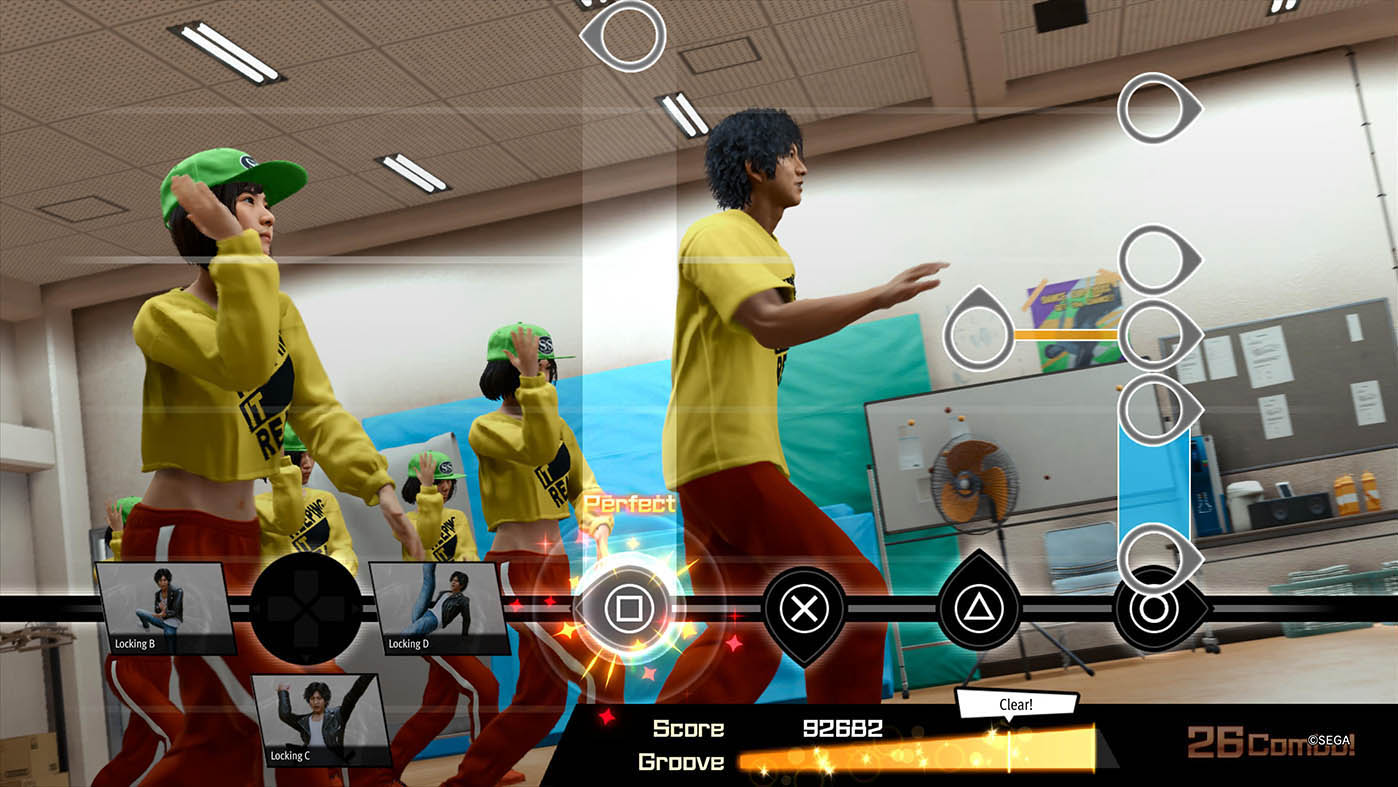
For anyone that missed the real-time combat of the Yakuza titles when the series pivoted to turn-based battles in Like a Dragon, the good news is that Lost Judgment continues where Judgment left off. The even better news is that this is arguably the best iteration of melee combat that the studio has put together thus far. Adding to the existing Tiger and Crane fighting styles, Yagami gains a third in the form of Snake – a more defensive style that allows him to disarm enemies, redirect their blows and even scare them into submission. This new style feels almost necessary in the context of the high school portions of the game where facing off against teens is frighteningly common, allowing players with consciences to defend themselves in a mostly-passive way.
Fights in general feel as fast, fluid and over-the-top as ever and hold up shockingly well even with a dozen or more combatants in the fray, but one small addition makes all the difference in Lost Judgment’s moment-to-moment gameplay. Yagami now gains bonus SP (used to unlock new abilities) for fulfilling certain conditions in combat, such as using takedowns, knocking enemies out in quick succession or even things like throwing them into oncoming traffic. These stack and can be multiplied with unlocked buffs and become a core strategy for amassing huge amounts of SP, which helps significantly cut down on the fatigue of being harassed on the streets by thugs or kids – what would normally be a nuisance just turns into a new opportunity to test yourself and see how many points you can farm. Where I’d normally be inclined to sprint away from enemy groups as the game went on, I found myself actively picking fights throughout the entire game because of this one small change.
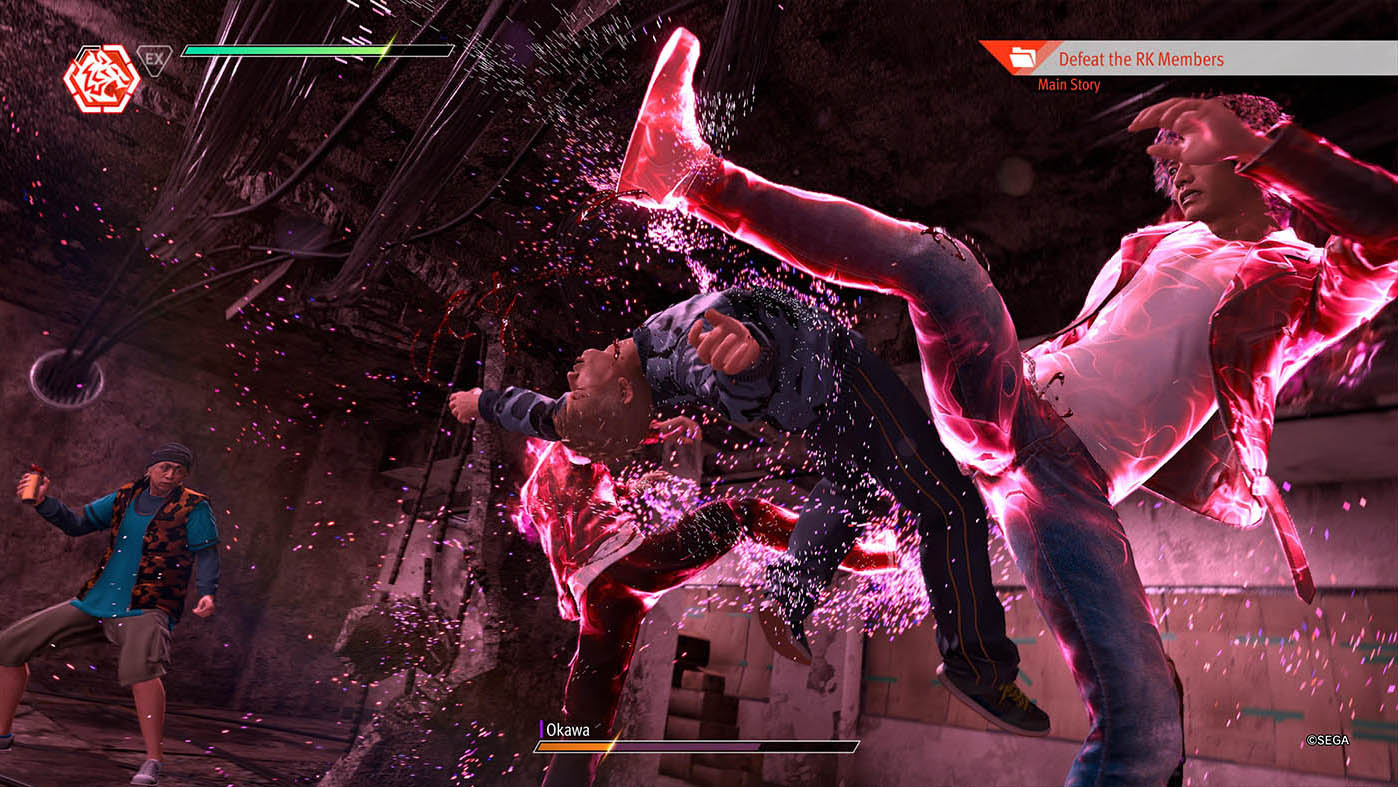
While definitely bound by the shackles of its last-gen version, this is still by far the best that Kamurocho and Yokohama have ever looked. Lighting and environmental detail continue to the RGG’s strong suit and here that’s bleedingly obvious – the atmosphere is palpable whether you’re soaking in sun by the shore, hitting the Chinatown alleys by night or scoping out dingy abandoned apartments for clues. Combat remains incredibly flashy as well, cinematic cutaways of brutal takedowns an endlessly rewarding reason to do more than button mash your way through encounters. I constantly found myself in awe of Lost Judgment’s characters and scenery, especially on the PS5 where I had the option of either a higher resolution presentation or a 60fps mode, the latter of which is definitely the better way to go given the pace of combat.
Lip syncing for the English audio is noticeably less accurate than in Like A Dragon or even the original Judgment, though that can be attributed to a first-ever simultaneous global release. Less forgivable are the surprisingly frequent moments in which character’s mouths don’t move at all, usually in scenes where faces are only briefly visible or seen solely in reflections – almost as if the team working on the English animations mistakenly skipped over numerous shots. Still, both Japanese and English dubs are excellent across the board and seeing RGG and SEGA’s increasing commitment to localisation has me excited for the future. The game’s music is as great as ever too, and the battle themes in particular are some of the best yet.
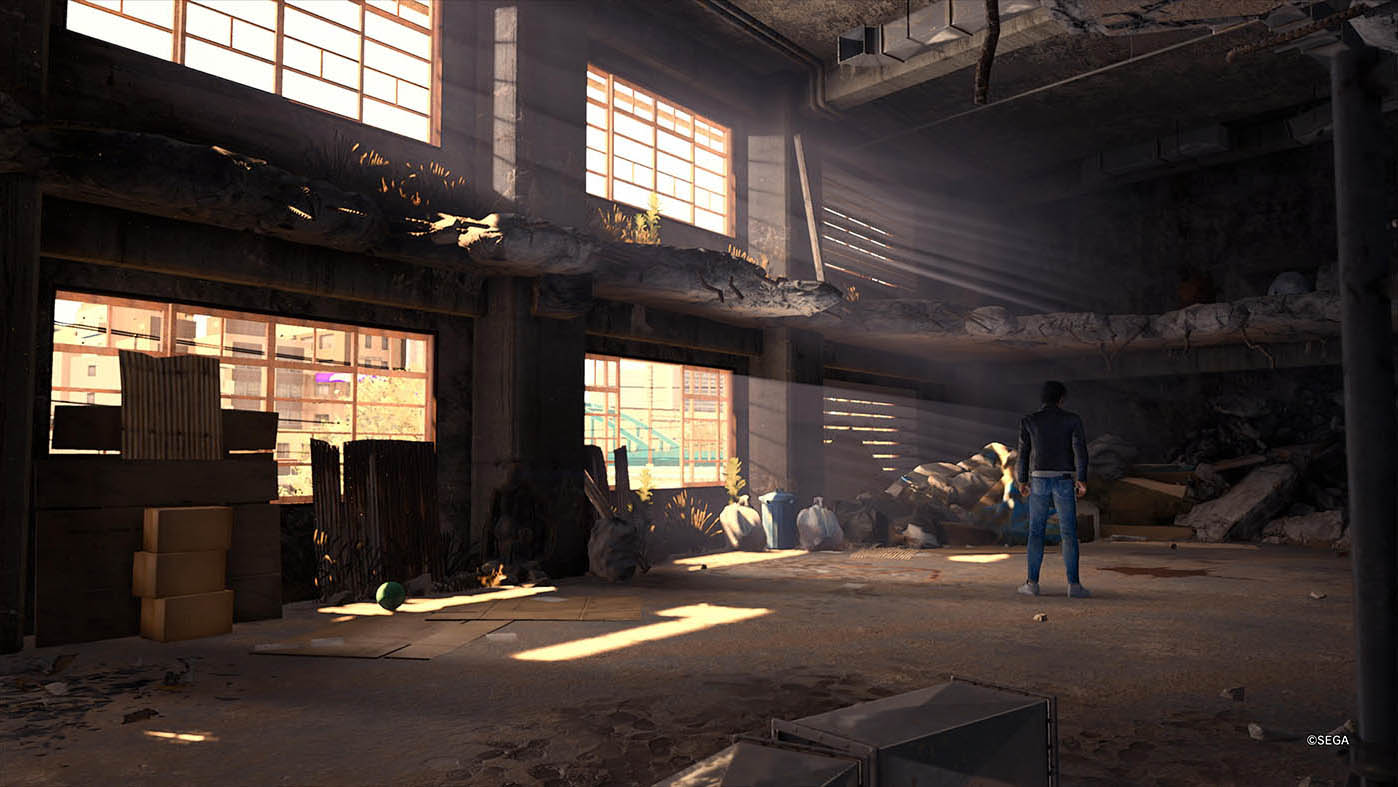
At the end of it all nothing about Lost Judgment, good or bad, should come as a shock to Ryu ga Gotoku fans. And it’s a great game – fantastic, even – but after the bombastic, emotional masterpiece that was Like a Dragon its small missteps do stand out that little bit more. If you’ve been craving a return to Yagami’s story and the brawler combat that now belongs to the Judgment games this is absolutely another worthy addition, though.


